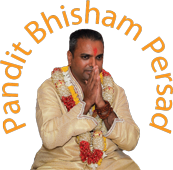Divali
Diwali is the abbreviation of the Sanskrit word “Deepavwali”, which means “row of lights”. The festival is celebrated on the occasion of Lord Krishna and his wife Satyabhama killing a demon Narakasura. Another story says the festival is celebrated for the return of Rama and Sita to the kingdom Ayodhya after fourteen years of exile.
Diwali (also spelled Devali in certain regions) or Deepavali,[note 1] popularly known as the “festival of lights,” is a festival celebrated between mid-October and mid-November for different reasons.[1] For Hindus, Diwali is one of the most important festivals of the year and is celebrated in families by performing traditional activities together in their homes. For Jains, Diwali marks the attainment of moksha or nirvana by Mahavira in 527 BCE.[2][3]
Diwali is an official holiday in India,[4] Nepal, Sri Lanka, Myanmar, Mauritius, Guyana, Trinidad & Tobago, Suriname, Malaysia, Singapore, and Fiji.
The name “Diwali” or “Divali” is a contraction of “Deepavali” (Sanskrit: दीपावली Dīpāvalī), which translates into “row of lamps”.[5] Diwali involves the lighting of small clay lamps (dīpa in Sanskrit: दीप) filled with oil to signify the triumph of good over evil.[6] These lamps are kept on during the night and one’s house is cleaned, both done in order to make the goddess Lakshmi feel welcome.[7] Firecrackers are burst in order to drive away evil spirits.[8][9][10] During Diwali, all the celebrants wear new clothes and share sweets and snacks with family members and friends.
Diwali commemorates the return of Lord Rama, along with Sita and Lakshmana, from his 14-year-long exile and vanquishing the demon-king Ravana. In joyous celebration of the return of their king, the people of Ayodhya, the Capital of Rama, illuminated the kingdom with earthen diyas and by bursting firecrackers.[11]
